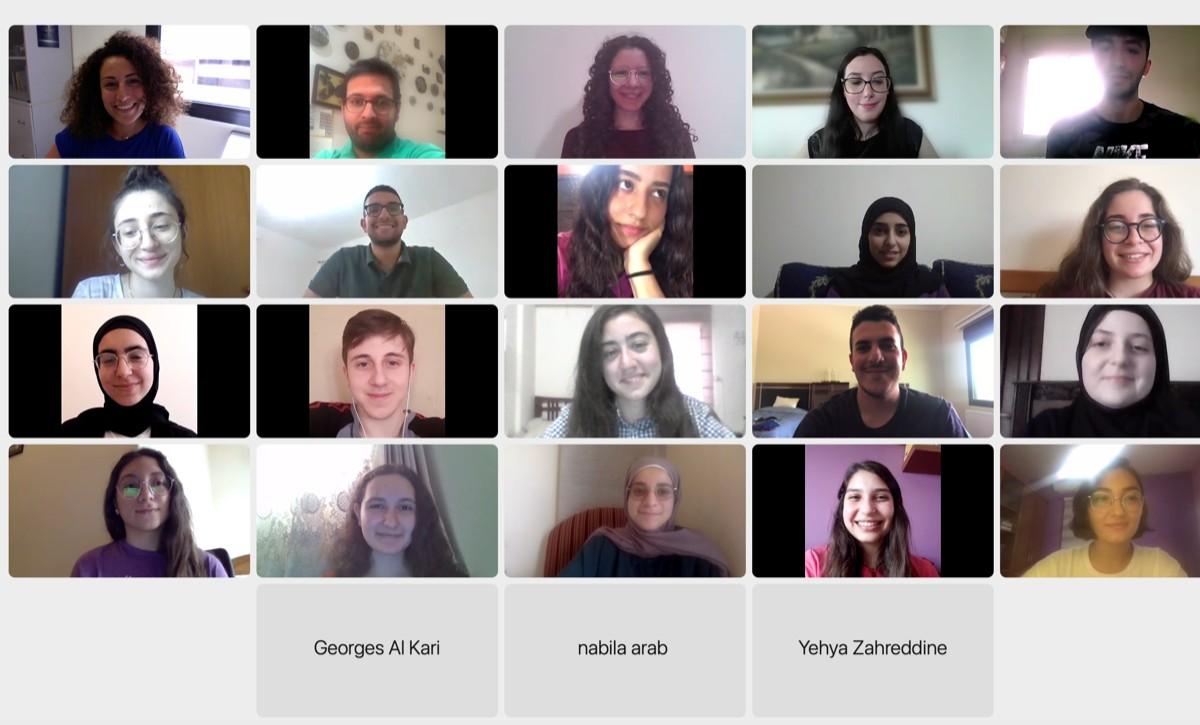Fifty-five SoAS Students Embark on Another URaD Journey

The School of Arts and Sciences (SoAS) at LAU kicked off the second edition of its signature Undergraduate Research and Discovery (URaD) program on May 31 with 55 new enthusiastic junior students from various disciplines.
The SoAS created the competitive one-year program for its students from all majors to allow them to conduct research and/or artistic projects under the direct supervision of a faculty mentor, without the pressure of failing their courses.
Once admitted, URaD scholars receive intensive training over 10 days by faculty from across the school. The program runs eight 2.5-hour workshops that are mandatory for all participants.
This year, the students who were accepted in the program are majoring in biology, chemistry, physics, psychology, computer science, political science, mathematics, English, education, philosophy, gender studies and bioinformatics.
Raya Eid said her choice of majoring in bioinformatics was driven by her interest in research, and URaD presented the perfect opportunity for her to develop her skills.
“It is the field I love and hope to practice in the future, so as soon as I found an opportunity to make my hopes come true this early on as an undergraduate and attain this unique research experience I did not hesitate to apply!”
Eid, who was diagnosed with Type I Diabetes when she was six years old, said it has always been her dream “to contribute to research in the field of autoimmune diseases, specifically diabetes, because it is very promising and compelling.” During her time with URaD, she plans to explore the genetic background of Type I Diabetes Mellitus.
Mahatab El Haj, a psychology and TV/Film double major, reapplied to URaD after completing the first edition because she wanted “to be immersed in a research loving and encouraging environment once again.”
“I first applied because of my curiosity and craving for research. I reapplied [for the second edition] because I now find that this craving requires long term satiation,” said El Haj.
“I look forward to orienting myself and my pattern of thinking more towards finding questions and striving to answer them in an advanced academic environment!” she added.
Caren Kandil, a first-year biology pre-med student, applied to the program because she believed it will allow her “to gain deeper knowledge about scientific processes and sharpen my critical and analytical thinking skills.” She will be tackling research on how different PHD variations affect hypoxic tumor environment in breast carcinoma.
“URaD gives the opportunity to work closely with research experienced mentors which allows us to overcome any obstacles through the journey,” she said.
In addition to the courses, URaD will also host researchers and public figures who “will present motivational and life experience talks along the seminar series,” said Assistant Professor of Chemistry Elias Akoury, who is program co-coordinator with Assistant Professor of Multimedia Journalism Claudia Kozman.
Faculty members who agreed to be URaD mentors are invited to give 30-minute presentations during which they talk about who they are as researchers and highlight their areas of focus.
“Students are very motivated to take part in a research under a mentor. Many have already started working on their proposals and are engaging in laboratory work. I am very confident of the research deliverables at high standards,” said Dr. Akoury, also a mentor in the program.
Assistant Professor of Psychology Pia Tohme, who mentored three psychology students and two biology pre-med biology students in URaD’s first edition, said the experience fed into her commitment to promote research ideas and guide her students toward manifesting those ideas into studies.
“Undergraduate students tend to have very big and broad ideas, which are sometimes too optimistic to fit in one research proposal. They have to choose the primary objectives and possibly leave some ideas for future projects, all of this emphasizing the difference between feasibility, ambition and how to balance the two,” said Tohme, who is mentoring students this year as well.
The URaD experience differed from supervising students in her psychology classes because applicants had more freedom and flexibility in exploring their ideas without the pressure of passing a course.
“It was interesting to see them from a different light and how they grew after having taken the workshops offered by URaD. It was inspiring to see them confident in presenting their own ideas and taking initiative in arguing their opinions,” she said.
At the end of each cycle, all scholars receive a certificate of completion from the Dean’s Office.